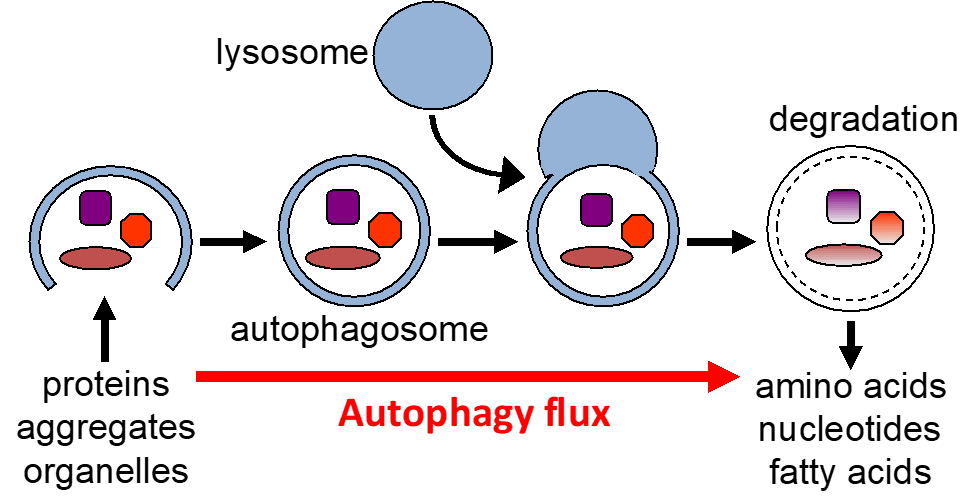Marta Lipinski, PhD
Function and mechanisms of Autophagy in acute CNS injury and age-related neurodegeneration
Autophagy is a catabolic process mediating the turnover of bulk cytoplasmic constituents including organelles and protein aggregates in a lysosome-dependent manner (Figure 1). It is necessary for cellular homeostasis and protects organisms from a variety of diseases, including neurodegeneration and aging. My lab uses a combination of in vivo transgenic mouse models and in vitro cell-based models to investigate the function and mechanisms of autophagy and its perturbation in CNS disease. Our interests include both acute CNS injury due to traumatic brain injury (TBI) and spinal cord injury (SCI) and chronic age-related neurodegeneration in Parkinson’s disease (PD). We are also investigating a potential role for autopahgy in liking history of TBI to development of neurodegeneration and demantia later in life. Our long-term goal is to define novel target molecules and pathways for safe and effective modulation of autophagy as a treatment against neurodegeneration induced by both acute (trauma) and chronic (neurodegenerative diseases) causes.

Figure 1. During autophagy cytoplasmic cargo including proteins, protein aggregates and organelles are sequestered into double-membrane vesicles termed autophagosomes. Autophagosomes then fuse with lysosomes, allowing degradation of their contents by lysosomal proteases. This progress of cargo from sequestration into autophagosomes, to delivery to lysosomes and lysosomal degradation, is termed autophagy flux and is necessary for normal function of autophagy.
Active Grants
|
NIH R01 NS094527 The Function and Mechanisms of Autophagy in Spinal Cord Injury PI: Junfang Wu |
2016 - 2021 |
|
NIH R01 NS091218 Function and Mechanisms of Autophagy-lysosomal Pathway in Traumatic Brain Injury Role: PI |
2015 - 2020 (NCE) |
|
2018-MSCRFE-5106 Inhibition of the PARK10 gene USP24 as a neuroprotective treatment in Parkinson’s disease Role: PI |
2019 - 2021 |
|
FDA 3U01FD005946-03S3 Development of diagnostic biomarkers for determination of traumatic brain injury Role: MPI (Kane/Lipinski/Jones/Sarkar) |
2019 - 2022 |
|
University of Maryland System, UMCP & UMB AI + Medicine for High Impact (AIM-HI) Challenge Award Development of a predictive multi-omics platform for the study of aging and age-associated diseases Role: MPI (Lipinski/Kane/Cummings/Jones)
|
2020 - 2023 |
|
NIH R01 NS091218 Dysregulation of autophagy-lysosomal function links TBI to late-onset neurodegeneration Role: PI |
2020 - 2025 |
